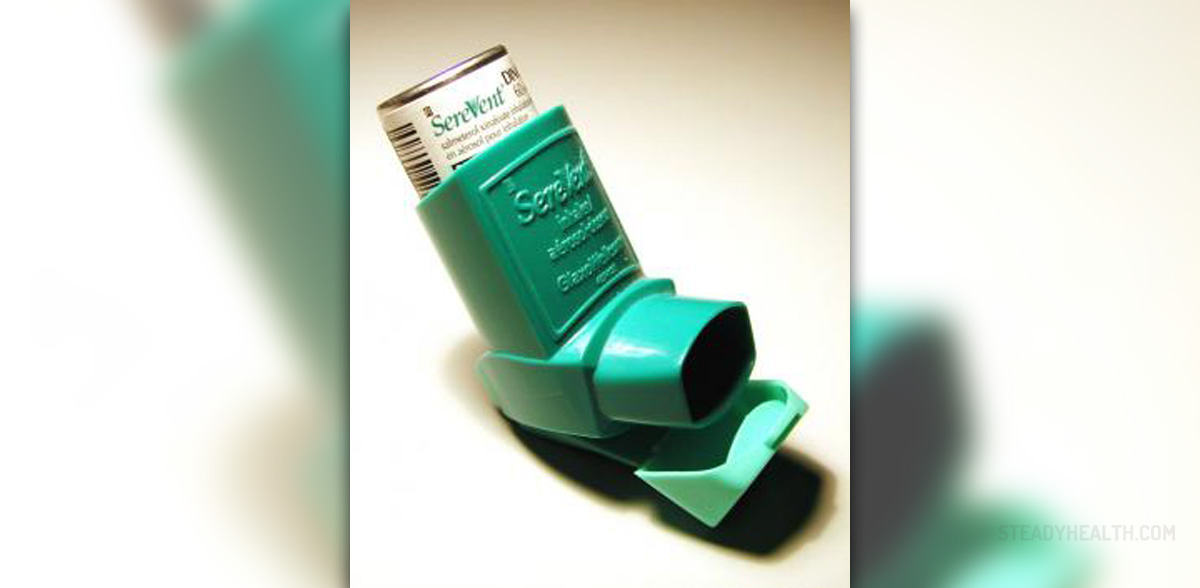
Asthma is a chronic inflammatory disease of the airways accompanied with wheezing, coughing, shortness of breath and chest tightness. Symptoms of asthma may be of a different severity and may vary from person to person. Also, the symptoms may flare up in certain situations.
Asthma occurs due to inflammation in the airways that causes obstruction of airflow and leads to increased production of phlegm. This results in asthma symptoms. Exact cause of asthma is not fully understood but it is believed that the combination of genetic and environmental factors are mainly responsible. Asthma often runs in families. In sensitive people the can be triggered by dust, mold, pollen and chemicals.
Asthma can be classified as atopic (extrinsic) or non-atopic (intrinsic). There is no cure for asthma but the symptoms can be controlled. Treatment for asthma symptoms involves avoiding triggers, inhaling corticosteroids, leukotriene antagonists and other drugs.
The prevalence of asthma has increased in the last thirty years in most parts of the world. Around 300 million people all over the world are affected by it. Although asthma may cause death, prognosis is generally good particularly for children suffering from a mild form of the disease.
Mild asthma differs from chronic asthma by less severe symptoms with longer duration between the flare ups. Mild asthma must be kept under control to prevent it from turning into moderate or severe persistent asthma.
Treatment for Mild Asthma
Treatment for mild asthma aims to alleviate the symptoms and prevent the exacerbation. Mild intermittent asthma is featured by symptoms like cough, wheezing and chest tightness that occur during the daytime around two times a week. Mild intermittent sometimes does not have to be treated but corticosteroids can be prescribed to prevent potential risk of exacerbation.
Mild persistent asthma is asthma of the same intensity as mild intermittent asthma but the attacks are more frequent. Also the risk of exacerbation is increased therefore mild persistent asthma requires treatment. It is usually controlled with low doses of inhaled corticosteroids, leukotriene modifiers and sustained release theophylline.
Prevention of Exacerbation
As already said earlier, the treatment for asthma includes managing the symptoms and exacerbation prevention. This requires taking prescribed medications regularly and in recommended dosage. On the other hand, skipping or changing the doses can drastically worsen the condition. Also, the triggers like pollen, dust, fumes, smoke and insects must be avoided.
If exacerbation occurs, it must be recognized as early as possible. Short-acting beta agonists can be used frequently in order to prevent frequent attacks. If this treatment fails to improve asthma after six hours, the sufferer has to be admitted to hospital. Asthma is a life-threatening disease and must be adequately treated to prevent lethal outcome.
- www.cdc.gov/flu/asthma/index.htm
- www.nhs.uk/conditions/asthma/
- Photo courtesy of Mendel by Wikimedia Commons: commons.wikimedia.org/wiki/File:AsthmaInhaler.jpg

















Your thoughts on this
Loading...